

The Post-Graduate Diploma in Management (PGDM) program is AICTE approved and structured to provide a perfect combination of in-depth conceptual understanding and practical insights to tackle real-world business issues. The program comprises of 4 semesters spanning over 2 academic years, with specializations in Marketing, Finance, Human Resource Management, Operations, and Systems. The present in-take of the program is 180 seats.
Program
Objective:
The overarching objective of the program is to develop effective managers and leaders who
shall contribute to business and society. The hands-on learning experience and practical
classroom instructions provide the students with the necessary knowledge, skills and
attitude to solve real problems. The program aims to hone skills like critical thinking,
team building, and effective communication in students. In addition, the program also
focuses on developing an entrepreneurial mindset, and the ability to think and act
creatively and proactively.
PEO 1: To develop students as management professionals by honing their critical- thinking, analytical & problem-solving skills for effective decision-making.
PEO 2: To enable students to adapt to changes in the business environment both locally and globally.
PEO 3: To sensitize students to socio-cultural & economic aspects impacting the current and future requirements of organizations and society.
PEO 4: To develop ethical business leaders and entrepreneurs.
| PEOs\Mission | Develop Managerial Skills with focus on Communication, Critical Thinking and
Problem
Solving. (M1) |
Impart the required knowledge to students to make them agile professionals. (M2) |
Equip students with the ability to understand economic and socio-cultural
systems. (M3) |
Provide high- quality management education through Contemporary Pedagogy. (M4) |
Develop leaders focusing on excellence; excellence includes ethics. (M5) |
| PEO 1: To develop students as management professionals by honing their critical- thinking, analytical & problem-solving skills for effective decision-making. | H 3 | H 3 | H 3 | H 3 | M 2 |
| PEO 2:To enable students to adapt to changes in the business environment both locally and globally. | M 2 | M 2 | H 3 | H 3 | M 2 |
| PEO 3:To sensitize students to socio-cultural & economic aspects impacting the current and future requirements of organizations and society. | M 2 | H 3 | H 3 | M 2 | H 3 |
| PEO 4:To develop ethical business leaders and entrepreneurs. | M 2 | M 2 | M 2 | M 2 | H 3 |
PO 1: Apply knowledge of management theories and practices to solve business problems
PO 2: Foster Analytical and critical thinking abilities for data-based decision making
PO 3: Ability to develop value-based leadership ability
PO 4: Ability to understand, analyze and communicate global, economic, legal and ethical aspects of business.
PO 5: Ability to lead themselves and others in the achievement of organizational goals, contributing effectively to a team environment.
The program pedagogy offers scope for rich experiential learning through:
Lectures
Case Studies
Classroom Discussions
Peer Learning
Audio-Visual Aids
Presentations
Participation In Events and Competitions
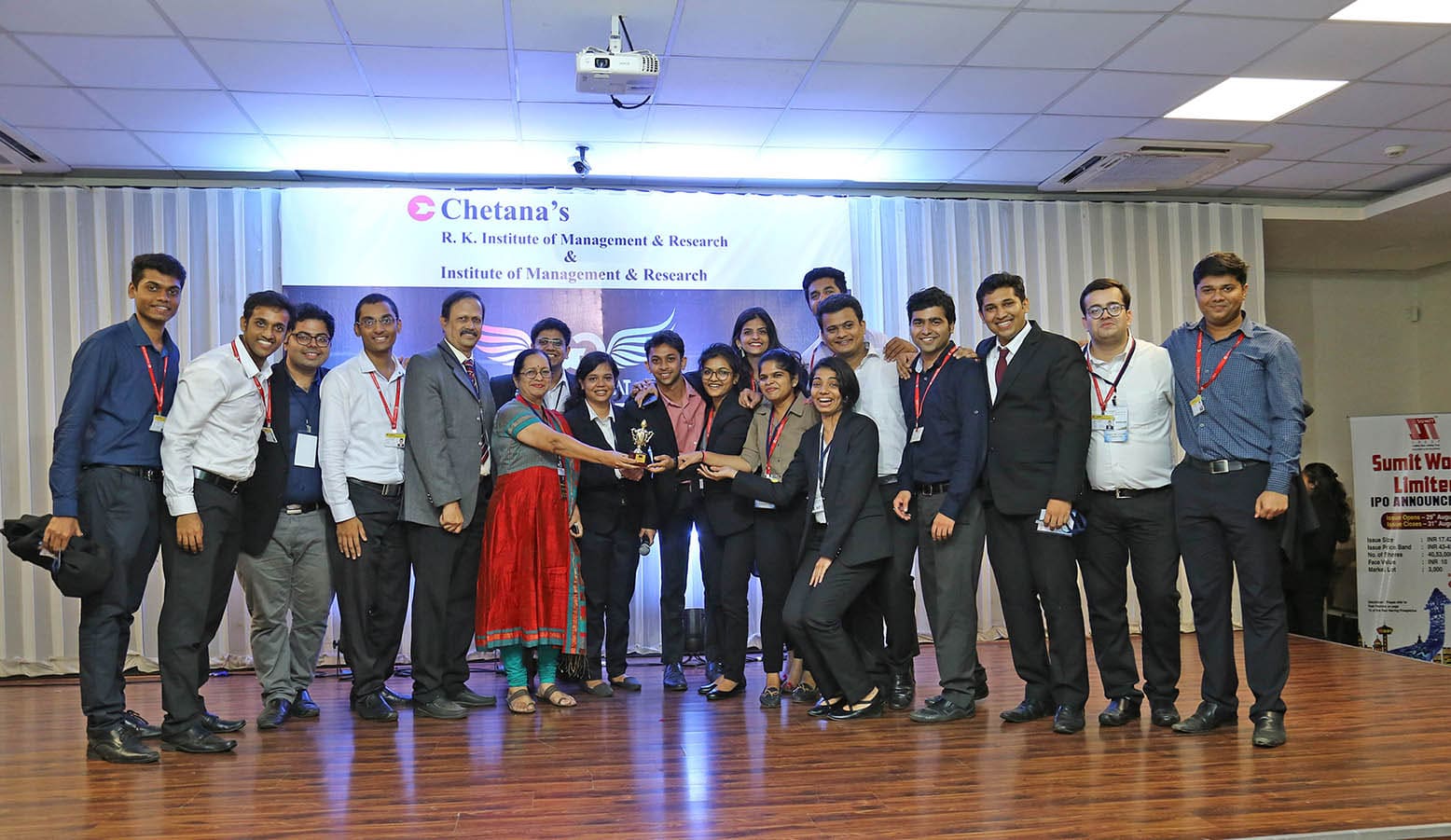
Due importance is given to both classroom and non-classroom learning in the form of industry interaction, internships, live projects in order to enable self-development of the student with the requisite skills, knowledge, and ethics. These tools enable to integrate perspectives across functional areas, which in turn lead to students becoming proficient in not only their specialisation but also other areas catering to holistic business decision making. The choice of pedagogic methods is based on the premise that the learning experience must not only enhance the student’s practical capabilities but also instil social responsiveness. The evaluation system comprises quizzes, assignments, case analysis, project work, group exercises, field-work, internships, mid-term assessments and comprehensive examinations. Evaluation is continuous and spread throughout the course delivery.
The first year curriculum aims at strengthening fundamentals in all areas of functional management and provides a holistic perspective of general management. Students undertake an 8-10 week summer internship with our industry partners at the end of the second semester. At the beginning of the second year, the students can select their areas of specializations offered such as; Marketing, Finance, Human Resources, Operations, and Systems. The third and fourth semesters provide inputs in the chosen area of specialisation and are customised to the career focus of students and the industry requirements. The PGDM Subjects include:
| Semester 1 | Semester 2 |
|
1. Innovative Management Practices & Business Ethics 2. Information Systems for Business 3. Fundamentals of Financial Accounting 4. Fundamentals of Marketing Management 5. Organisational Behaviour 6. Managerial Communication 7. Quantitative Techniques 8. Fundamentals of Production and Operations Management 9. Economic Environment of Business 10. Selling and Negotiation Skills |
1. Managerial Economics 2. Entrepreneurship Management 3. Analysis of Financial Statements 4. Fundamentals of Financial Management 5. Fundamentals of HRM 6. Managing Business Research 7. Operations Research 8. Marketing Management - Concepts & Cases 9. Any one: Financial Markets, Institutions and Services (Finance) Sales and Distribution Management (Marketing) HR Labs (HR) Total Quality Management (Operations) IT Enabled Business Strategies (Systems) 10. Legal & Tax Aspects of Business |
| Semester 3 | Semester 3 |
|
1. International Trade & Global Management 2. Strategic Management 3. Summer Internship Project Marketing Specialization 1. Digital Marketing 2. Marketing Research and Analytics 3. Services Marketing 4. Consumer & Industrial Buying Behaviour 5. Managing Products & Brands 6. Integrated Marketing Communications Electives ( Any 1) 1. Marketing of Banking & Financial Services 2. Ecommerce and Retail 3. B2B Marketing 4. Rural Marketing 5. Media Management Finance Specialization 1. International Trade & Global Management 2. Strategic Management 3. Summer Internship Project 4. Corporate Valuations, Mergers & Acquisitions 5. Security Analysis and Portfolio Management 6. Banking & Insurance 7. Financial Regulations 8. Derivatives and Risk Management 9 a. Credit Research Analysis 9 b. Wealth Management Electives ( Any 1) 1. Financial Analytics 2. Behavioural Finance 3. Financial Modelling 4. International Finance |
1. International Trade & Global Management 2. Strategic Management 3. Summer Internship Project HR Specialization 1. Training & Development 2. Compensation and Benefits 3. Competency based HRM & Performance Management 4. IR & Labour Laws 5. HR Analytics 6. Organisational Structure Theories and Design Electives ( Any 1) 1. Strategic HRM and Talent Acquisition 2. HR Audit 3. Digital Marketing for HR 4. Leadership and Team Management 5. Employer Branding Operations Specialization 1. International Trade & Global Management 2. Strategic Management 3. Summer Internship Project 4. Manufacturing Resource Planning and Control 5. Materials Management 6. Service Operations Management 7. Operations Analytics 8. Supply Chain Management 9. World Class Manufacturing Electives ( Any 1) 1. Strategic Sourcing in Supply Management 2. International Logistics 3. Business Process Re-engineering and Benchmarking 4. Strategic Operations Management Systems Specialization 1. International Trade & Global Management 2. Strategic Management 3. Summer Internship Project 4. Database Mgmt. Sys. & Data Warehousing 5. Enterprise Management System 6. Big Data and Business Analytics 7. Knowledge Management 8. Software Engineering 9. Data Mining for Business Intelligence Electives ( Any 1) 1. Managing Technology Business 2. Information Systems Security & Audit 3. IT Goverance and Compliance |
| Semester 4 | |
|
1. Project Management 2. Industry Oriented Project Marketing Specialization 1. Trends in Marketing Finance Specialization 1. Project Finance HR Specialization 1. Organisational Development Operations Specialization 1. Operations Application & Cases Systems Specialization 1. System Applications & Case Study * Please note that the Course Structure is subject to revision |
In addition to courses of a conventional management education program, the institute offers the following value addition courses to enable holistic development of the students:
Colours of Diwali with Fulora Foundation
The students of Chetana’s Institutes of Management and Research added a dash of colour this Diwali to the lives of more than 1400 street children. Over 250 students, in association with Fulora Foundation organized a drawing competition for the street children of Mumbai. The objective behind the activity was to draw the children who live in the fringes into the mainstream.
The students visited over 75 locations across Mumbai and distributed drawing sheets and crayons to children ranging from ages 2 to 15. The wonderful imagination and talent of the children was captured in the beautiful images painted by the children. The drawings made by the children were judged by an esteemed panel comprising of veteran artists and the Dean of JJ School of Art. The best drawings would be auctioned and the proceeds generated would go towards funding the education of the underprivileged children.
For the management students, the entire activity was an exercise in resource planning, manpower management and coordination. The outcome was that while they made a difference in the children’s lives, they made a difference in their own lives.
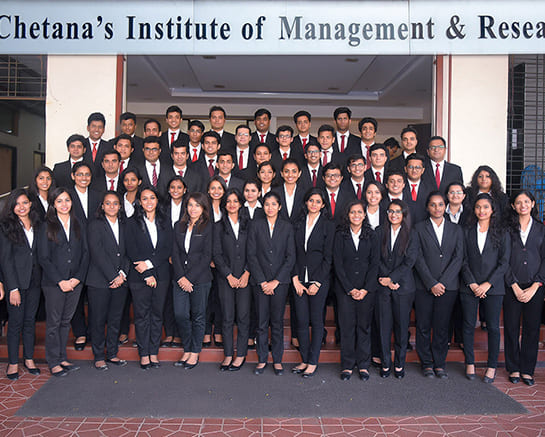
Marketing management is a critical factor which directly influences the organic growth and sustenance of any organization. It is with this premise that that PGDM Marketing program has been designed. This program teaches students how to devise and deploy effective marketing strategies to counter any challenges in business. The program comprises of 4 semesters spanning over 2 academic years. The present in-take of the program is 60 seats.
Program Objective:
The primary objective of the PGDM Marketing program is to develop effective managers and
leaders who are able to use their functional knowledge to address business challenges in a
socially and ethically responsible manner. The program aims to hone knowledge of the
marketing function while also gaining an overall understanding of other related disciplines.
In addition, the program also focuses on developing an entrepreneurial mindset, and the
ability to think and act creatively and proactively.
PEO 1: To develop students as management professionals by honing their critical- thinking, analytical & problem-solving skills for effective decision-making.
PEO 2: To enable students to adapt to changes in the business environment both locally and globally.
PEO 3: To sensitize students to socio-cultural, economic and marketing aspects impacting the current and future requirements of organizations and society.
PEO 4: To develop ethical business leaders and entrepreneurs in the field of marketing.
| PEOs\Mission | Develop Managerial Skills with focus on Communication, Critical Thinking and
Problem Solving. (M1) |
Impart the required knowledge to students to make them agile professionals. (M2) |
Equip students with the ability to understand economic and socio-cultural
systems. (M3) |
Provide high- quality management education through Contemporary Pedagogy. (M4) |
Develop leaders focusing on excellence; excellence includes ethics. (M5) |
| PEO 1: To develop students as management professionals by honing their critical- thinking, analytical & problem-solving skills for effective decision-making. | H 3 | H 3 | H 3 | H 3 | M 2 |
| PEO 2:To enable students to adapt to changes in the business environment both locally and globally. | M 2 | M 2 | H 3 | H 3 | M 2 |
| PEO 3:To sensitize students to socio-cultural & economic and marketing aspects impacting the current and future requirements of organizations and society. | M 2 | H 3 | H 3 | M 2 | H 3 |
| PEO 4:To develop ethical business leaders and entrepreneurs in the field marketing. | M 2 | M 2 | M 2 | M 2 | H 3 |
PO 1: Apply knowledge of management theories and practices to solve business problems
PO 2: Foster Analytical and critical thinking abilities for data-based decision making
PO 3: Ability to develop value-based leadership ability
PO 4: Ability to understand, analyze and communicate global, economic, legal and ethical aspects of business.
PO 5: Ability to lead themselves and others in the achievement of organizational goals, contributing effectively to a team environment.
The program pedagogy offers scope for rich experiential learning through:
Lectures
Case Studies
Classroom Discussions
Peer Learning
Audio-Visual Aids
Presentations
Participation In Events and Competitions
Due importance is given to both classroom and non-classroom learning in the form of industry interaction, internships, live projects in order to enable self-development of the student with the requisite skills, knowledge, and ethics. These tools enable to integrate perspectives across functional areas, which in turn lead to students becoming proficient in not only their specialisation but also other areas catering to holistic business decision making. The choice of pedagogic methods is based on the premise that the learning experience must not only enhance the student’s practical capabilities but also instil social responsiveness. The evaluation system comprises quizzes, assignments, case analysis, project work, group exercises, field-work, internships, mid-term assessments and comprehensive examinations. Evaluation is continuous and spread throughout the course delivery.
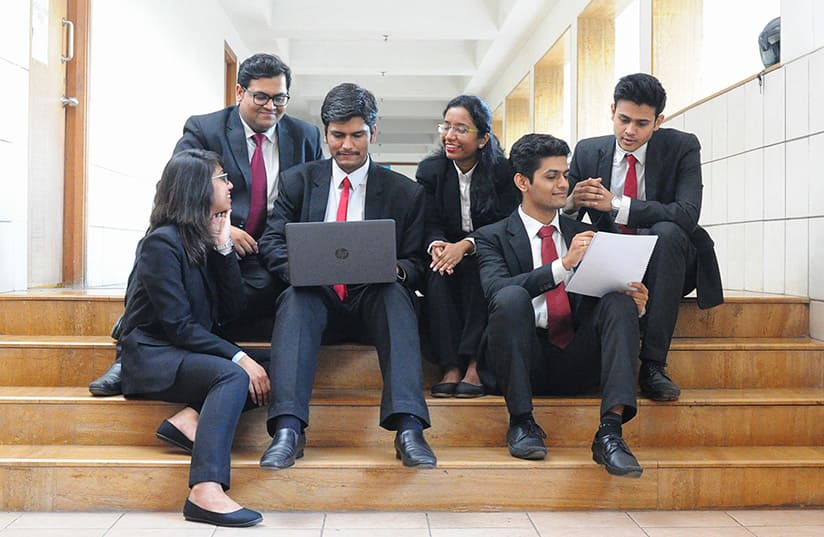
The first year curriculum aims at strengthening fundamentals in all areas of functional management and provides a holistic perspective of general management. Students undertake an 8-10 week summer internship with our industry partners at the end of the second semester. The third and fourth semesters provide inputs in the marketing specialization and are customised to the career focus of students and industry requirements.
| Semester 1 | Semester 2 |
|
1. Economic Environment of Business 2. Fundamentals of Financial Accounting 3. Fundamentals of Marketing Management 4. Fundamentals of Production and Operations Management 5. Quantitative Techniques 6. Information Systems for Business 7. Innovative Management Practices & Business Ethics 8. Managerial Communication 9. Organisational Behaviour 10. Selling and Negotiation (Marketing Lab) Value Add: Proficiency in MS Office |
1. Managerial Economics 2. Operations Research 3. Finance in Marketing 4. Fundamentals of Human Resource Management 5. Entrepreneurship Management 6. Managing Business Research 7. Marketing Management - Concepts & Cases 8. Sales and Distribution Management 9. Consumer and Industrial Buying Behaviour 10. Legal & Tax Aspects of Business 11. Marketing Application and Practices Value Add: Off-Summer Internship |
| Semester 3 | Semester 4 |
|
1. International Trade & Global Management 2. Stragic Management 3. Summer Internship Project Marketing Specialization 1. Managing Products & Brands 2. Digital Marketing 3. Services Marketing 4. Marketing Research & Analytics 5. Media Management 6. Integrated Marketing Communications Electives ( Any 1) 1. B2B Marketing 2. Marketing of Banking & Financial Services 3. Retail and E-Commerce |
1. Trends in Marketing 2. Project Management 3. Industry Oriented Project |
Colours of Diwali with Fulora Foundation
The students of Chetana’s Institutes of Management and Research added a dash of colour this Diwali to the lives of more than 1400 street children. Over 250 students, in association with Fulora Foundation organized a drawing competition for the street children of Mumbai. The objective behind the activity was to draw the children who live in the fringes into the mainstream.
The students visited over 75 locations across Mumbai and distributed drawing sheets and crayons to children ranging from ages 2 to 15. The wonderful imagination and talent of the children was captured in the beautiful images painted by the children. The drawings made by the children were judged by an esteemed panel comprising of veteran artists and the Dean of JJ School of Art. The best drawings would be auctioned and the proceeds generated would go towards funding the education of the underprivileged children.
For the management students, the entire activity was an exercise in resource planning, manpower management and coordination. The outcome was that while they made a difference in the children’s lives, they made a difference in their own lives.
Retail has evolved tremendously from the traditional era of the barter system to the current brick and click era. Digitalization has played a huge role in this evolution. Digital transformation in the retail industry starts with the understanding of the simple fact that technology is now an inseparably integral part of retail. Retailers have turned to Artificial Intelligence, Big data, the Internet of things, Virtual and Augmented reality to seek opportunities for business improvement.
At Chetana’s we aim at imparting education with a perfect blend of field projects, case studies, assignments, presentations, guest lectures, role plays, field visits, interactive classroom lectures and discussions.
The students of retail program have the opportunity of participating in Industrial Visits, Live Projects, Off- Summer Projects and weekend Field Projects.
The program strives to give the best intellectual inputs through varied teaching methodology and has been instrumental in inculcating awareness in every student of the following:
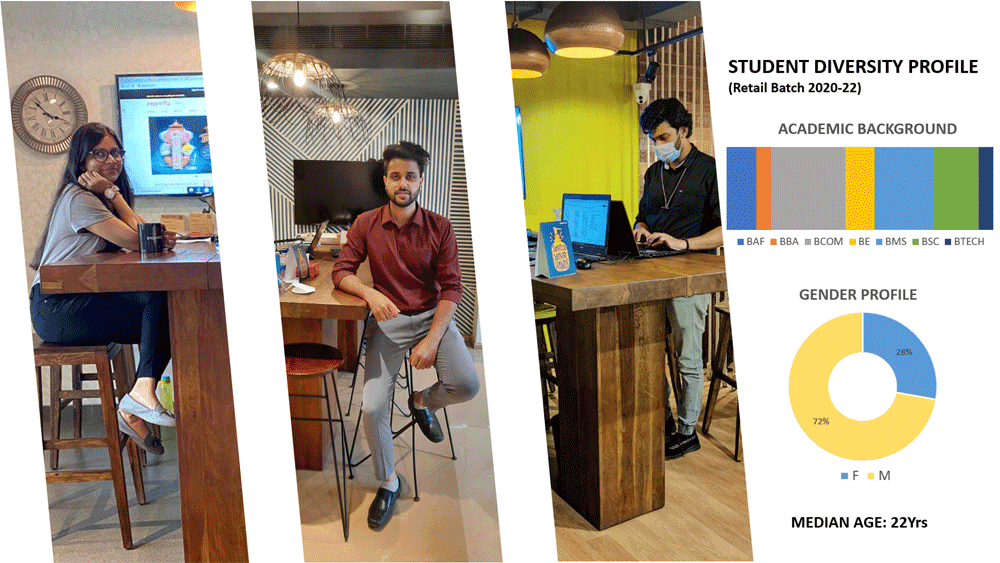
PEO 1: To develop students as management professionals by honing their critical- thinking, analytical & problem-solving skills for effective decision-making.
PEO 2: To make the students aware of the factors impacting the Retail business environment.
PEO 3: To make the students aware of the processes & responsibilities of managers through hands-on experience.
PEO 4: To develop enterprising and ethical business leaders who can meaningfully contribute to Business and society.
PEO 5: To enable the students to comprehend, understand, and adapt to the complex Retail business environment.
PO 1: Apply knowledge of management theories and practices to solve business problems.
PO 2: Foster Analytical and critical thinking abilities for data-based decision making.
PO 3: Ability to develop value-based leadership ability.
PO 4: Ability to understand, analyze and communicate global, economic, legal and ethical aspects of the business.
PO 5: Ability to lead themselves and others in the achievement of organizational goals, contributing effectively to a team environment.
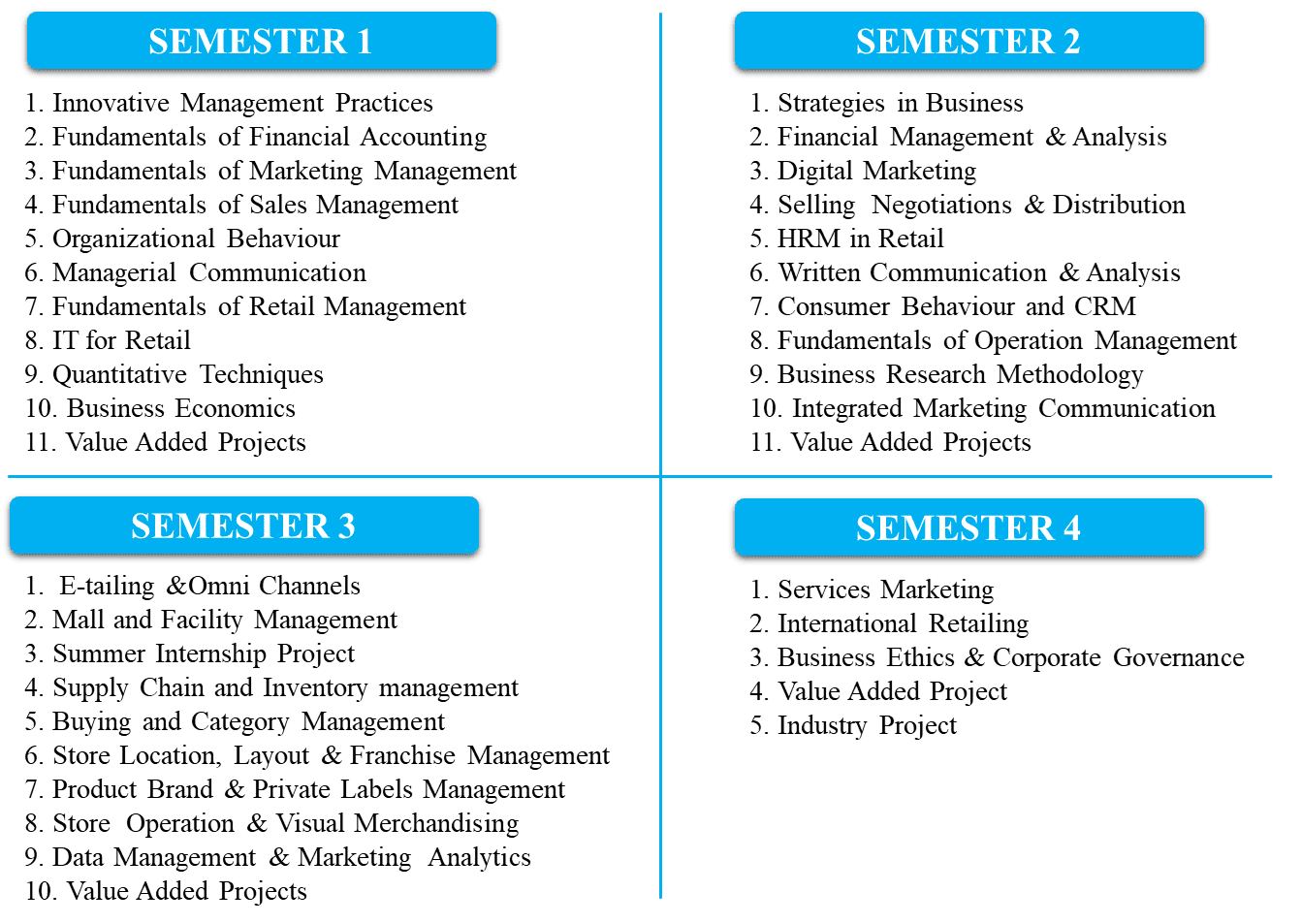
The course is based on real life cases from companies, important concept based readings in Managerial Decision making, talks from industry experts and regular classroom discussions and lectures. A series of Value Added Projects is the inseparable component of the course which includes:
Field Projects on
Every Weekend
Guest Speakers
From Industry
Role Plays & Creative
Short Movies
Case Studies
Projects on
Business Models
Group
Discussions
Conference Room
Meeting (CRM) & VAP
Interactive and participative teaching methodologies are deployed by creating a competitive environment for students giving them an insight into professional set up. As an outcome, students are expected to improve upon their presentation & communication skills along with subject knowledge, while learnin g to work together as teams. A series of Value Added Projects is an inseparable component of the course.
‘E- Sense, The Essence of Retail’ is based on the principle of centrality of the letter ‘E’ in the retail industry, signifying E-Commerce and Entrepreneurship.
It is a series of student driven events that are integral to Chetana’s way of learning and imparting education. Industry stalwarts and experts from the retail industry participate in it regularly providing the students a platform to interact and discuss industry pertinent issues with an intent to gain new knowledge & stay updated with the current industry practices.

Life in the 90s event was conceptualized by PG Retail students as a part of Chetana’s Silver Jubilee Celebrations. It challenged students’ imagination & creativity giving them a peek into the glorious 90s decade with lessons on time management & project management as integral part of the activity. The event involved rigorous online as well as offline research, taking interviews of multiple people born before 90s. Sections like a 90s Quiz & classic TV commercial popular at that time made ensured audience engagement.
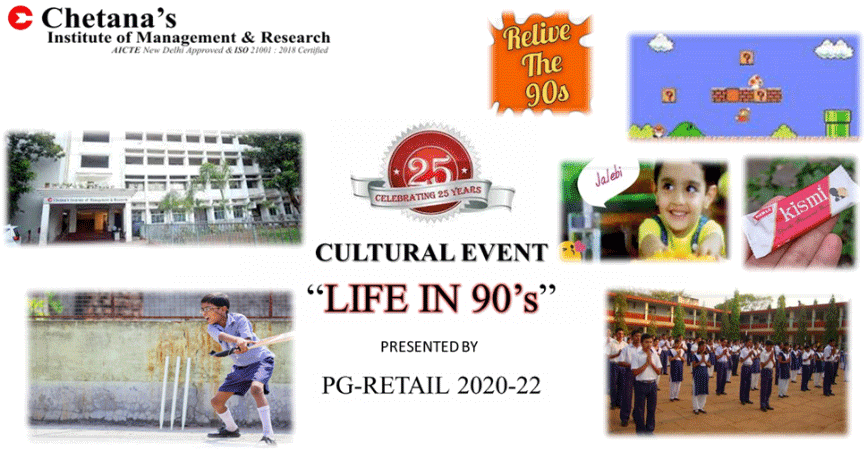
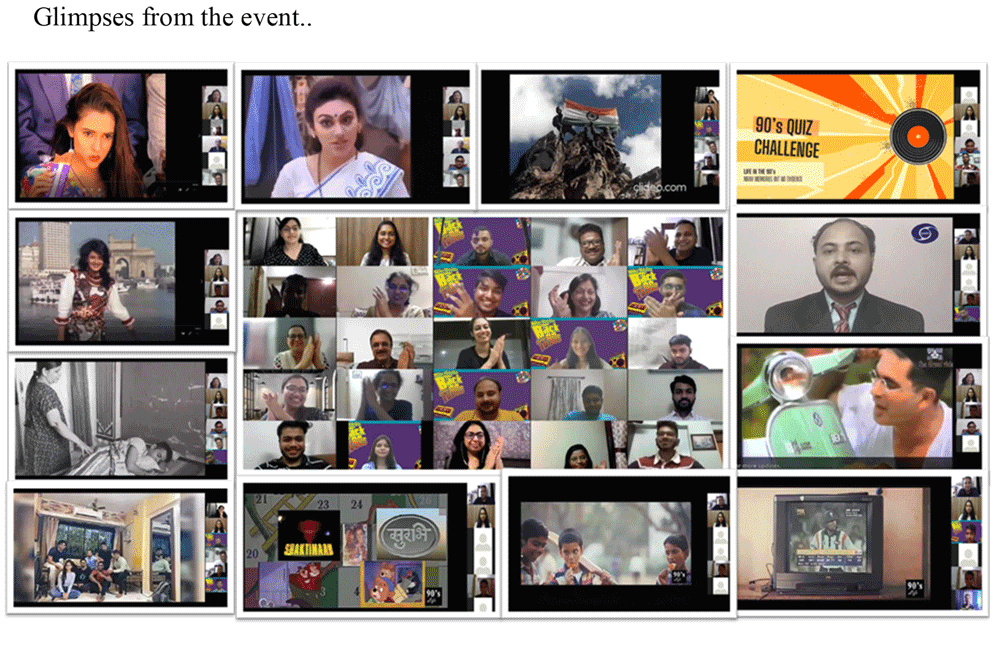
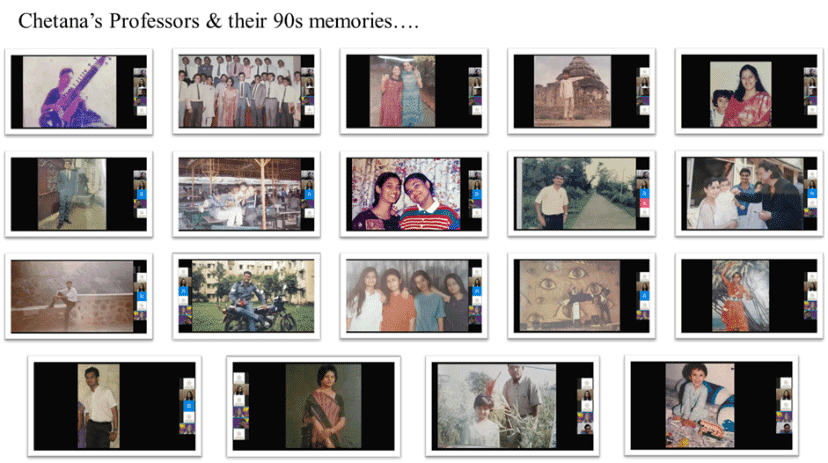
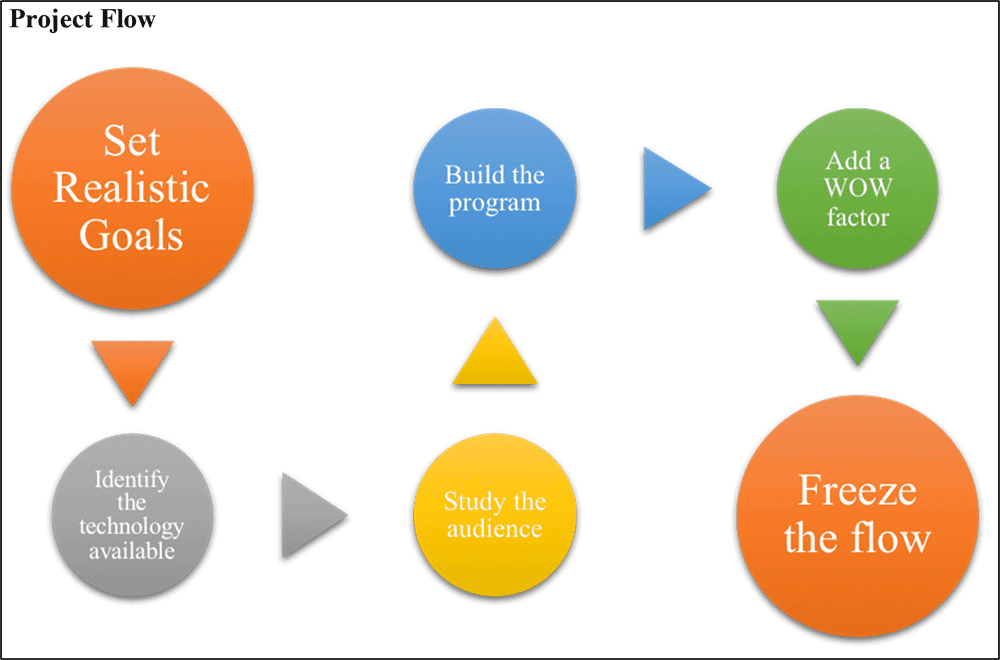
CIMR provides an ideal environment for young minds to explore new ideas and encourages critical thinking to develop lifelong learning skills. Apart from academics, students are naturally driven towards participating in their areas of interest, activities like sports, cultural fests, festivals, leadership, and development programs.
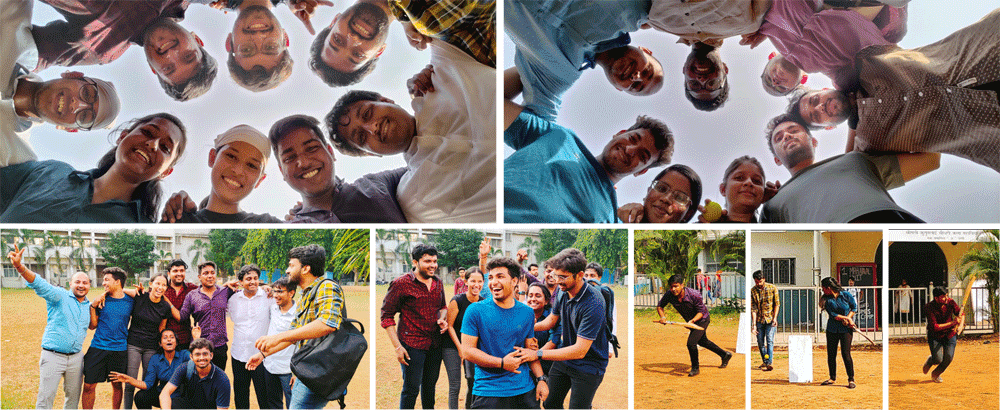
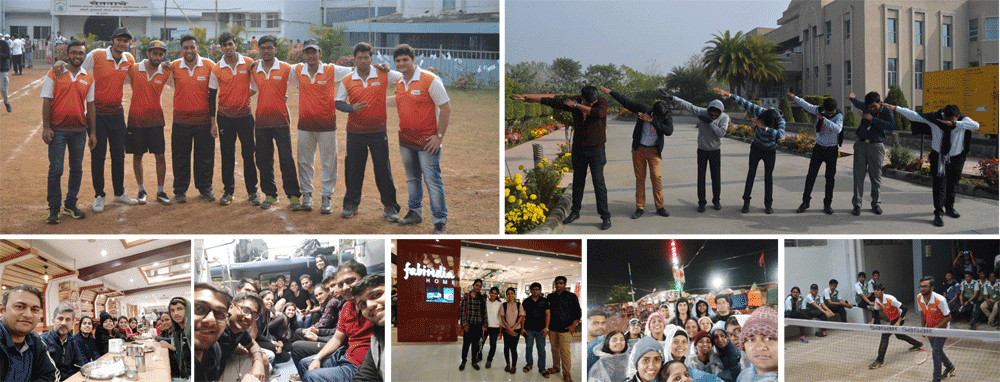
On-site visits are scheduled for retail students in Mumbai & nearby locations, enabling learning beyond classrooms. Interactions with industry professionals helps reinforce retail fundamentals & serves like a bridge between theory & practice.
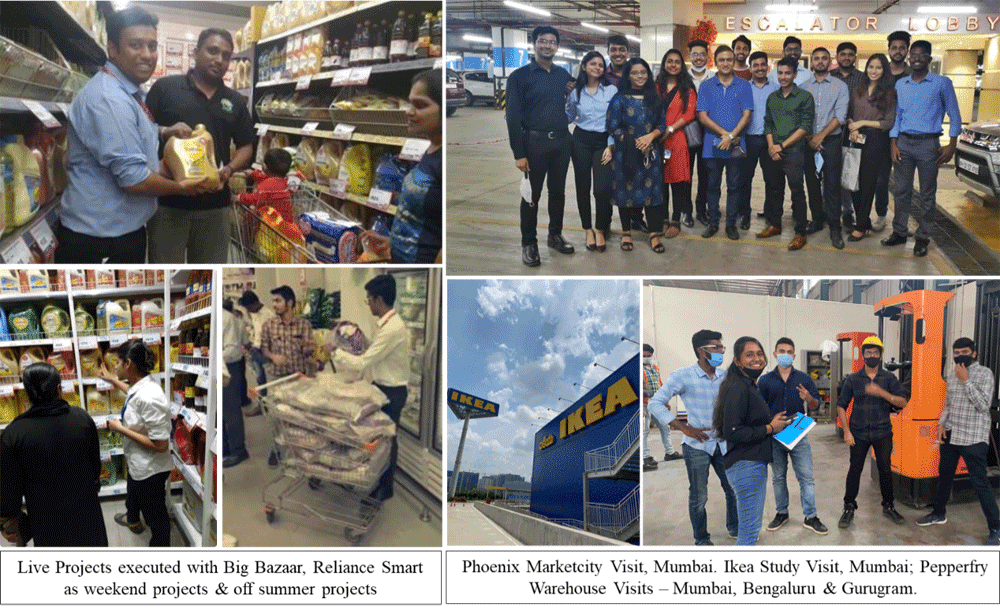
An outstation Industry Visit is an integral part of the PGDM Retail program. The itinerary usually involves a visit to some of the iconic retail malls along with some manufacturing facility of a company catering to the retail industry. Such visits are jointly conducted together with the industry professional with relevant rich experience.
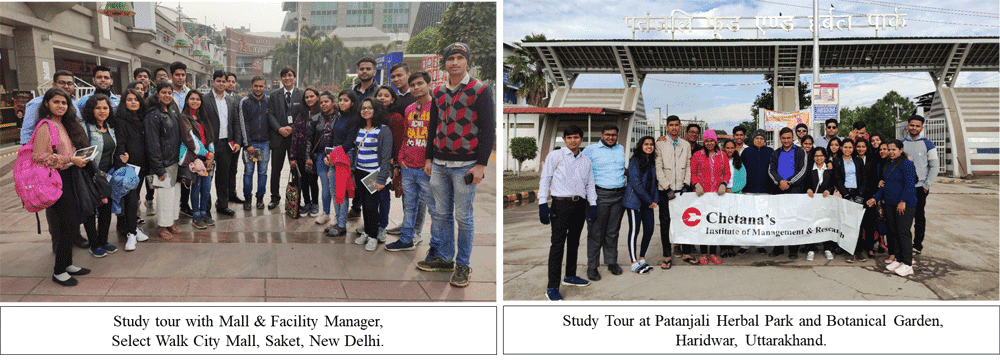
PG-Retail students get hired by various retail companies for temporary assignments giving them the much needed on the job training, preparing them for a bright future in the retail industry.
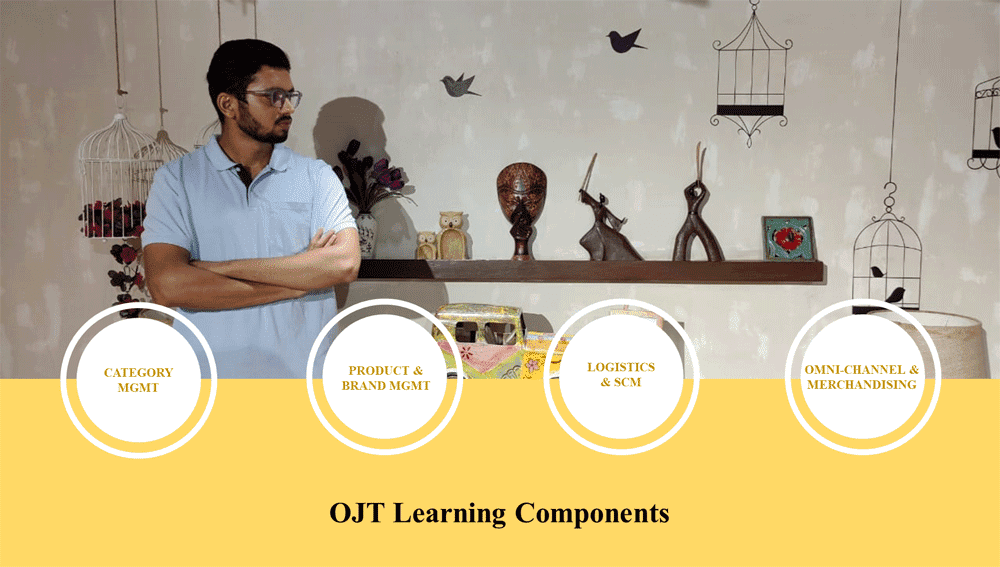
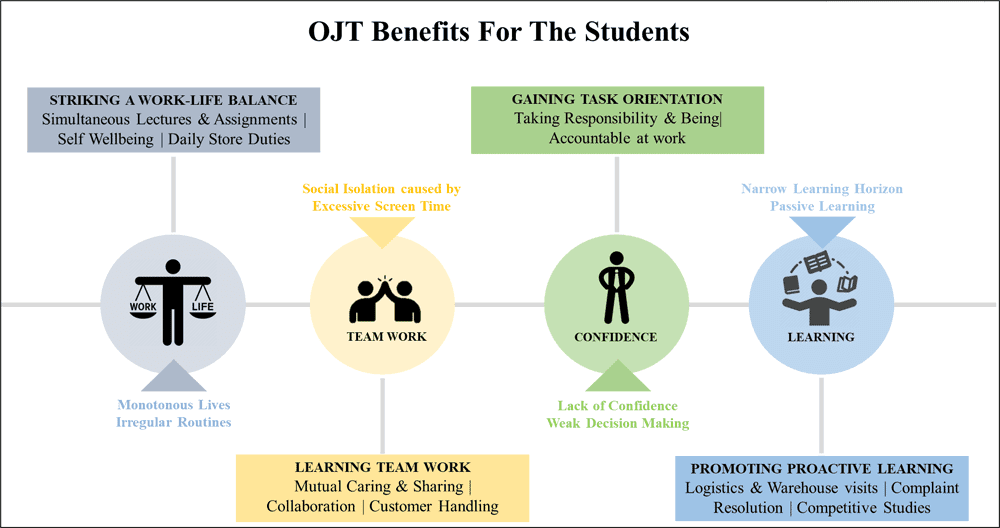
Chetana’s PG Retail Program primarily caters to the managerial positions based out of the corporate offices of retail industry giants. A strong industry orientation, rigorous institute regime and industry rich curriculum brings about the required transformation in student profile making them fit for a variety of job types across retail organization.
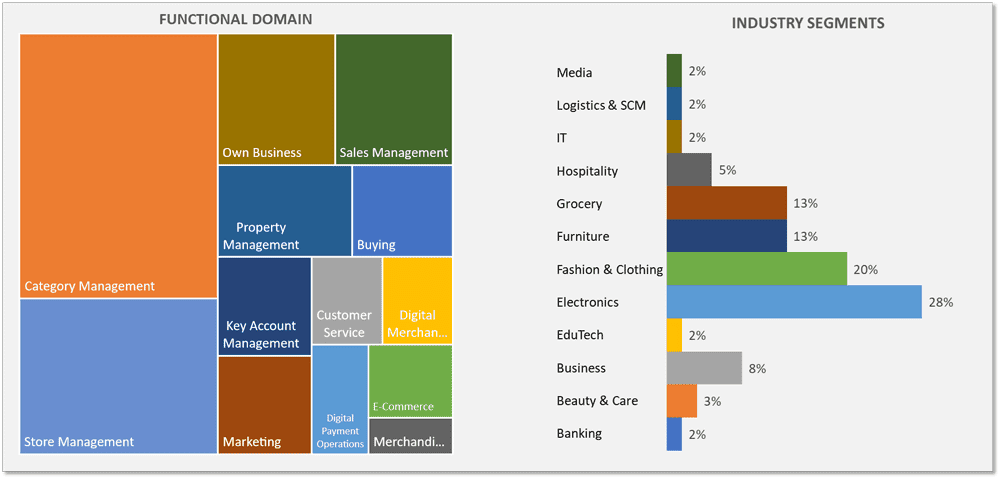
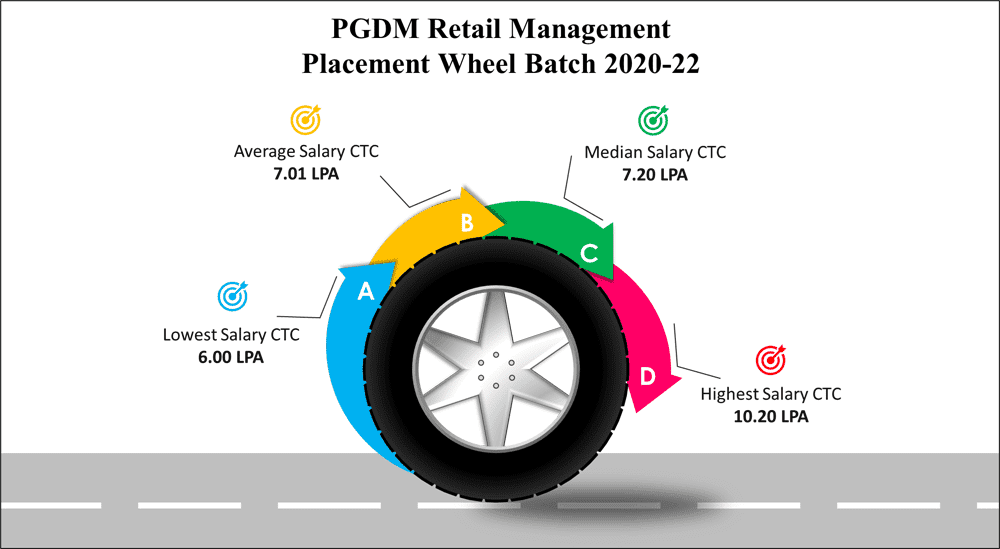

Mandatory Disclosures : Mandatory | AICTE Approvals
FAX : 022 26423392 EMAIL US : 
CALL US : 022 62157800/01/02/03
Mandatory Disclosures : Mandatory | AICTE Approvals
FAX : 022 26423392
EMAIL US : 